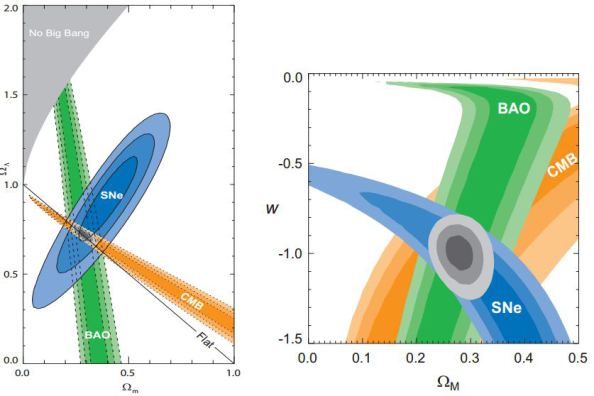Cosmology

[click image to enlarge]
Cosmology has evolved into a precise experimental science over the past few decades. The influx of high quality data from various observations, made possible by advances in technology, has led to the emergence of the "Standard Cosmological Model" that describes the universe and its evolution to the present state based on a few parameters. According to this model, only 4% of the universe is described by the standard model of particle physics, while 23% is made of dark matter, and the rest is in some mysterious form called dark energy. The familiar 4% consists almost entirely of baryons and the amount of antimatter observed in the universe is negligible.
Fundamental questions regarding the observed properties of the universe (such as the nature of dark matter and the absence of appreciable amount of antimatter) can find their answer in the realm of particle physics. The Large Hadron Collider (LHC) has now put us on the verge of discovering new physics beyond the standard model. When combined with a whole array of ongoing and upcoming ground and space based experiments, it provides a golden opportunity for us to discover and establish the connections between fundamental physics and cosmology in the next several years.